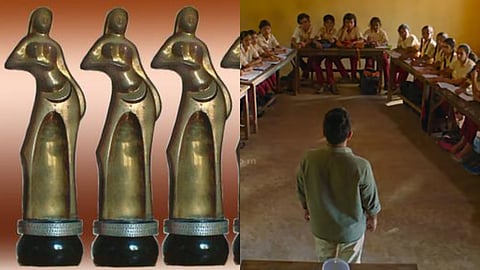

The 55th Kerala State Film Awards have sparked a fresh wave of debate after the jury decided not to confer honours for Best Children’s Film and Best Child Artist this year. Jury chairman Prakash Raj explained that the decision stemmed from the absence of “genuine children’s cinema” among the submissions, prompting backlash from within the film community.
Prakash, addressing the media after the announcement, said the jury “did not find a single film or even an attempt to make a children’s film.” He urged filmmakers to recognise children as vital participants in society and storytelling. “Just by casting children, it doesn’t become children’s cinema,” he noted. “We need to know what children think and how they see the world. None of the films captured children’s perceptions, and the few child actors we saw were not speaking their age; they were just props.”
However, Prakash’s comments did not sit well with many in the industry. Child actor Devananda, best known for Malikappuram, publicly criticised the jury for “turning a blind eye to the upcoming generation.” In a Facebook post, she stated that the decision overlooked several strong performances by young talents in films such as Sthanarthi Sreekuttan, Gu, ARM, and Phoenix. “If those children had received the awards, it would have inspired many others,” she wrote. “It is deeply disappointing that the jury chairman who spoke about the need to include children in cinema failed to acknowledge their rights.”
Filmmaker Vinesh Viswanath, who directed Sthanarthi Sreekuttan, echoed similar sentiments. Sharing a still from his film showing a classroom restructured into a semi-circle, a scene that reportedly inspired real-life changes in schools across several Indian states, he remarked, “In a world of no worthy entries for Best Child Actor, they stand tall.” Speaking to Mathrubhumi English, Vinesh questioned whether the same standards would have been applied to top categories like Best Actor or Actress. “Would they ever declare no award if they felt performances were subpar? The lack of limelight in children’s categories seems to make it easier to dismiss them,” he said.
Vinesh also pointed out that Sthanarthi Sreekuttan was not certified as a children’s film by the Central Board of Film Certification, a factor that could have affected its eligibility. “It’s an outdated criterion,” he argued. “We need to rethink the parameters of what defines a children’s film today.”
Minister for Cultural Affairs and Cinema Saji Cheriyan defended the jury’s decision, stating that the committee did not find the submissions “creative enough” to merit awards. “Out of 137 films received this year, only around 10 per cent met the quality standards,” he said. Nonetheless, the minister acknowledged the importance of children’s cinema and promised to address the issue. “The government will hold discussions with industry stakeholders soon. If support is needed to promote films for children, we will provide it. There will definitely be awards in these categories next year.”
This marks the second consecutive year that the Kerala State Film Awards have not recognised any children’s films. According to the existing rules, even if only one eligible entry is received, it can still be considered for an award provided the jury recommends it, a clause that critics argue was overlooked.